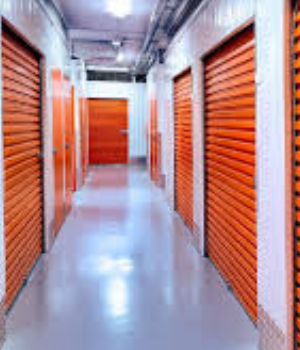The U.K. self-storage sector is strong despite the pandemic and other economic challenges. In fact, Storage King, one of the region’s largest operators, is fast-tracking its growth. CEO Robin Greenwood shares its plans, how the industry has been impacted by world events and what he sees for the future.
Storage King is the sixth largest self-storage operator in the United Kingdom, with 29 owned facilities and seven others trading under its brand name. In 2017, the company was acquired by South Africa’s largest self-storage company, Stor-Age Property REIT, a real estate investment trust established in 2006 by the Lucas Family and headquartered in Cape Town.
Now, Storage King is aiming to significantly increase the size of its portfolio. It formed a joint venture in 2020 with London-based real estate fund manager Moorfield Group to build five to 10 new sites in the next five years.
At the helm of this growth is Robin Greenwood, who’s been CEO of Storage King since 2009. With more than 30 years of industry experience, he’s watched the U.K. self-storage sector overcome a number of hurdles to remain a robust market. Greenwood recently shared how self-storage in his region has been impacted by the pandemic, challenges it still faces and his vision for the future.
What’s the state of the self-storage industry in the U.K.?
Self-storage is very much a product driven by change in people’s lives, so called “life happens” moments. Whether the economy is expanding or contracting, these moments continue to occur, and they’re powerful drivers of self-storage demand.
Storage King has experienced an uplift of around 20% in demand year-on-year since the pandemic started, which we believe is driven by these “life happens” moments. I don’t think this is sustainable, though. The furlough scheme and the stamp-duty holiday, which have played an important part in increasing demand in England, ended in late summer 2021, so I anticipate a gradual slowdown as demand returns to normal levels.
How has the industry been impacted by the coronavirus pandemic?
During the first lockdown, it was very much jumping into the unknown. No one really knew the best way forward. The main challenges were rushing to stock up on sanitizer, cleaning equipment and posters, as we wanted to protect our frontline staff and customers as much as possible. Adapting the business to be more automated was the other main challenge as everyone in the industry was wanting to do something similar, so suppliers were backlogged with demand.
Despite these challenges, the entire team—from stores to headquarters—stepped up and ensured the stores could run safely. Looking back, we’ve achieved great things over the past 18 months.
Are you acquiring existing facilities or developing new ones?
Our focus is on developing new properties and acquiring existing facilities in prime locations. Acquiring existing stores has its challenges but is an instant uplift to the bottom line and very rewarding when you can acquire them at a certain occupancy and grow them to capacity by making alterations and improvements along the way.
Acquisitions bring a number of challenges, but we have a proven track record over the past decade of acquiring existing stores and turning them around, so it’s certainly in our strategic growth strategy. New stores are great to have in your portfolio and have all the up to-the-minute technology, but then the pressure is always on to fill them.
Being part of a larger group has also allowed us to expand our offering. Principally, this is centered on “Management 1st,” our bespoke third-party management platform. We view this as a central pillar to our future growth prospects in the U.K. market. An interesting development under our Management 1st umbrella has been Digital 1st, a specialized digital-marketing service that has received a fairly rapid take-up by independent operators in the U.K.
What challenges does the storage industry still face in the markets in which you operate?
Awareness is a continuing focus for all operators. It’s an area that has seen significant improvement in recent years, but there’s still room for more. The self-storage industry as a whole is very resilient and, as such, can adapt to most challenges without having a negative impact on the business. As the industry matures, competition in certain locations for land or existing operators to acquire has increased, but there’s still plenty of opportunity in the U.K. for growth.
We’re currently embarking on a strategy to significantly increase the size of our portfolio and are excited about the years to come. We’ve found that investors are increasingly interested in the sector and financing is becoming more freely available, which is great for the growth of the industry.
We have no issues with staffing, as we employ the majority of our workforce from the hospitality, retail and leisure sector, which has experienced a significant downturn since the start of the pandemic. All our staff are customer-focused and sales-orientated.
What big changes have happened in your market over the past two years?
COVID-19 had a significant impact on the market, but after the initial slowdown we saw record-breaking demand as a result of an increased requirement for self-storage due. The past 18 months has seen us accelerate a number of planned developments in our infrastructure and led to more online interaction with customers, an area we’ll continue to develop and grow in line with user behavior.
What are your predictions for the future of self-storage in the U.K.?
The U.K. self-storage sector is a great industry to be in. I can see the continued introduction of new investors and operators into the market. For more established operators, I can’t speak for the industry as a whole; but for Storage King, we’ll continue to push the brand forward, expand our portfolio and, as always, seek to improve our service for customers across the board. To me, the customer is No. 1!





